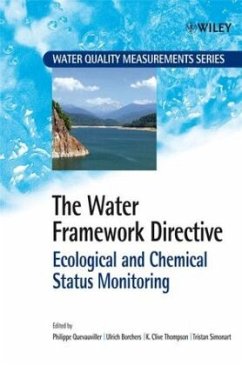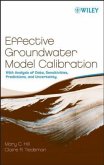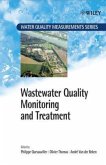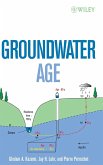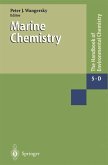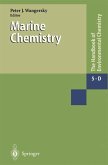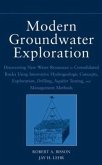The Water Framework Directive imposes wide scale monitoring programs for all waters to achieve "good status" objectives by 2015. Reflecting this recently introduced legislation, this volume is edited by EC representatives who were involved in establishing the legislation, along with colleagues in various water institutions who are implementing the legislation. The Water Framework Directive provides a comprehensive approach and guidance to researchers, scientists, and groundwater scientists in the environment and related industries on the theoretical and practical aspects for implementing the directive.
The EU Water Framework Directive 2000/60/EC is probably the most significant legislative instrument in the water field that has been introduced on an international basis for many years. It moves towards integrated environmental management with key objectives to prevent any further deteriorating of water bodies, and protect and enhance the status of aquatic ecosystems and associated wetlands. It aims to promote sustainable water consumption and will contribute to mitigating the effects of floods and droughts. This book presents an overview of the legal and technical provisions, implementation and results of assessing water quality within the framework of this EU Water Framework Directive. It is written by experts from different sectors, disciplines and interests within water status monitoring and provides an in-depth analysis of various monitoring features within the Water Framework Directive.
Within this comprehensive text the following sections are included and discussed:
_ general monitoring aspects, including case studies concerning different aquatic environments
_ analytical tools in support of WFD monitoring (including modelling).
_ aspects of groundwater and sediment monitoring
_ risk assessments linked to monitoring as well as data quality and reporting requirements
_ The book concludes with discussions about the need for an operational science-policy mechanism and about current activities and perspectives in the context of EU RTD programmes
The Water Framework Directive - Ecological and Chemical Status Monitoring will prove useful to students, researches and professionals involved with environmental and health sciences, analytical chemistry (and related environment monitoring), as well as those working in water companies and water producing industries. In addition, it will be relevant to those in related research institutes, pollution control and environmental monitoring laboratories.
Water Quality Measurements Series
This series provides a comprehensive coverage of the analytical techniques used for the measurement of substances in water, from sampling through to laboratory analysis. The scope of the series encompasses topic issues including quality assurance, standard procedures, and the best practices in measuring water quality, from surface and drinking water to coastal and wastewater. The techniques are discussed in relating to current legislation and guidelines.
The series aims to offer workable answers to specific issues related to measurements of the water cycle quality using a comprehensive and scientifically sound approach.
Hinweis: Dieser Artikel kann nur an eine deutsche Lieferadresse ausgeliefert werden.
The EU Water Framework Directive 2000/60/EC is probably the most significant legislative instrument in the water field that has been introduced on an international basis for many years. It moves towards integrated environmental management with key objectives to prevent any further deteriorating of water bodies, and protect and enhance the status of aquatic ecosystems and associated wetlands. It aims to promote sustainable water consumption and will contribute to mitigating the effects of floods and droughts. This book presents an overview of the legal and technical provisions, implementation and results of assessing water quality within the framework of this EU Water Framework Directive. It is written by experts from different sectors, disciplines and interests within water status monitoring and provides an in-depth analysis of various monitoring features within the Water Framework Directive.
Within this comprehensive text the following sections are included and discussed:
_ general monitoring aspects, including case studies concerning different aquatic environments
_ analytical tools in support of WFD monitoring (including modelling).
_ aspects of groundwater and sediment monitoring
_ risk assessments linked to monitoring as well as data quality and reporting requirements
_ The book concludes with discussions about the need for an operational science-policy mechanism and about current activities and perspectives in the context of EU RTD programmes
The Water Framework Directive - Ecological and Chemical Status Monitoring will prove useful to students, researches and professionals involved with environmental and health sciences, analytical chemistry (and related environment monitoring), as well as those working in water companies and water producing industries. In addition, it will be relevant to those in related research institutes, pollution control and environmental monitoring laboratories.
Water Quality Measurements Series
This series provides a comprehensive coverage of the analytical techniques used for the measurement of substances in water, from sampling through to laboratory analysis. The scope of the series encompasses topic issues including quality assurance, standard procedures, and the best practices in measuring water quality, from surface and drinking water to coastal and wastewater. The techniques are discussed in relating to current legislation and guidelines.
The series aims to offer workable answers to specific issues related to measurements of the water cycle quality using a comprehensive and scientifically sound approach.
Hinweis: Dieser Artikel kann nur an eine deutsche Lieferadresse ausgeliefert werden.

